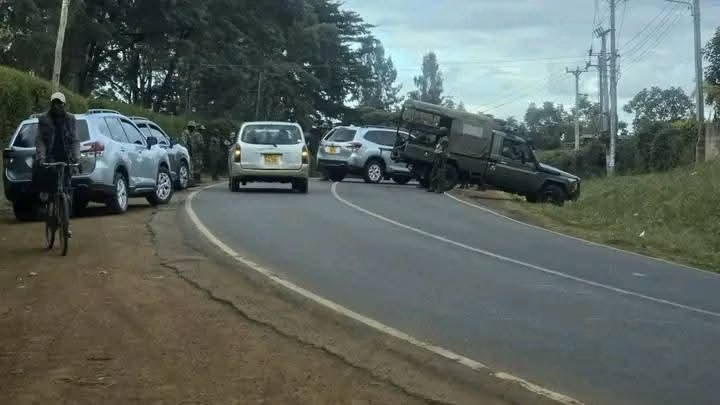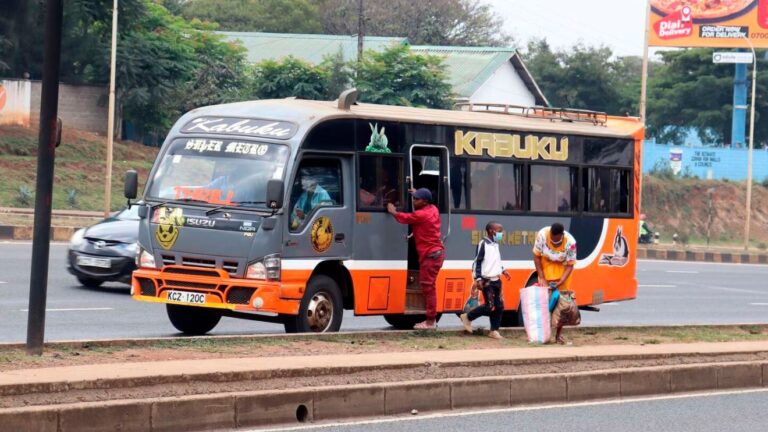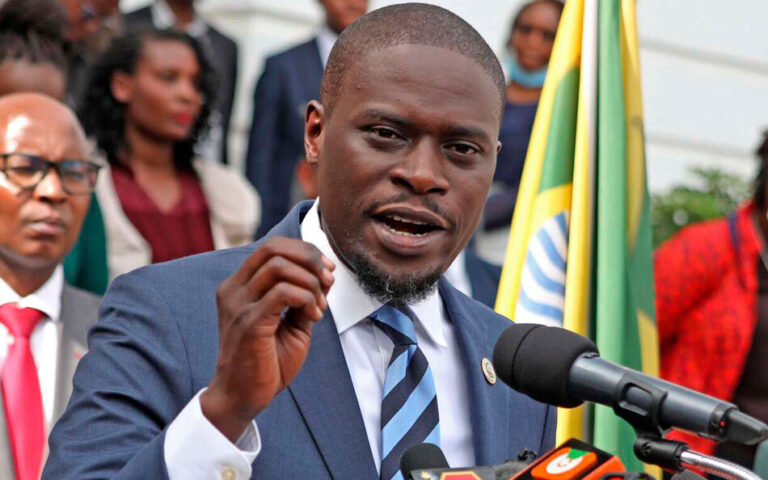
Police have reportedly raided Trans Nzoia Governor George Natembeya’s home under unclear circumstances.
According to reports, highly armed anti-riot police officers spearheaded the early-morning operation in cooperation with Ethics and Anti-Corruption Commission (EACC) representatives.
As hundreds of Natembeya’s followers gathered outside the house, tensions increased as they confronted police and engaged in a standoff.
Police struggled to keep the mob under control, and more reinforcements were sent in to stop the situation from getting worse.
Chanting “Tawe Movement” slogans, the governor’s supporters claimed the raid was politically motivated and accused the police of being used to settle political scores.
Speaking on Sunday, May 18, in Machakos, Wiper Party leader Kalonzo Musyoka said the EACC had been given a search warrant, and that the investigators would go through his properties, find him, and then let him go.
Kalonzo claims that the conspiracy to capture the governor was made up in order to damage the governor’s reputation.
“If you are the governor and you don’t toe the line of those in leadership of the highest level, they will send EACC after you, but I want to say that the commission should not be used,” he said.
”Governor Natembeya is threatened as we speak, and on Monday, which is tomorrow, they have obtained a search warrant to go and search his house. They just want to apprehend him and release him so that they may embarrass him before the people of trans Nzoi,” he added.
Also read: Martha Karua Detained and Deported Back to Kenya After Being Denied Entry into Tanzania
Police prevented Governor Natembeya and a number of members of parliament, together with former Defense Cabinet Secretary Eugene Wamalwa, from entering the Nzoia Sugar Company in Bungoma County on Monday of last week.
Security agents reportedly set up a barricade to stop the leaders, who had been accompanied by a group of attorneys, from meeting with management and stakeholders to discuss issues related to the problematic sugar mill.
There was no response to attempts to contact Governor Natembeya’s communication team regarding the incident.
Although he could not provide any information regarding the nature or purpose of the exercise, EACC CEO Abdi Ahmed Mohamud told NTV that the commission was in charge of the raid and described it as a routine operation.
Natembeya’s Encounter with Police
George Natembeya, the governor of Trans Nzoia, has taken the lead in addressing police brutality in Kenya and promoting police accountability. He underlined in May 2025 the necessity of a paradigm change in the way police excessive cases are handled and the significance of holding those responsible for ordering the use of needless force accountable.
More generally, Natembeya has been outspoken about the difficulties in battling insecurity and banditry in areas such as the North Rift. He attacked the government’s strategy, highlighting problems like the use of rookie police officers and the absence of assistance for security measures.
The difficulties of dealing with security issues and the requirement for a better-coordinated and knowledgeable approach to guarantee citizens’ safety and well-being are clarified by Natembeya’s observations.
There have been reports of heightened animosity toward dissident voices in relation to the purported altercation between Natembeya and police officers. For example, Natembeya quickly left Kakamega in March 2025 after encountering an antagonistic mob yelling pro-President William Ruto slogans.
Even though Natembeya refuted reports that he was driven away, the incident highlights the escalating hostilities between current administration supporters and government critics.
As evidenced by events such as the murders in Ong’ata Barrikoi and the BBC documentary “Blood Parliament,” which revealed abuses during the June 2024 protests, Natembeya’s position is in line with growing concerns about the use of deadly force by law enforcement.
To ensure justice and stop abuses in the future, it is imperative to implement legal reforms and strengthen organizations like the Independent Policing Oversight Authority (IPOA).

